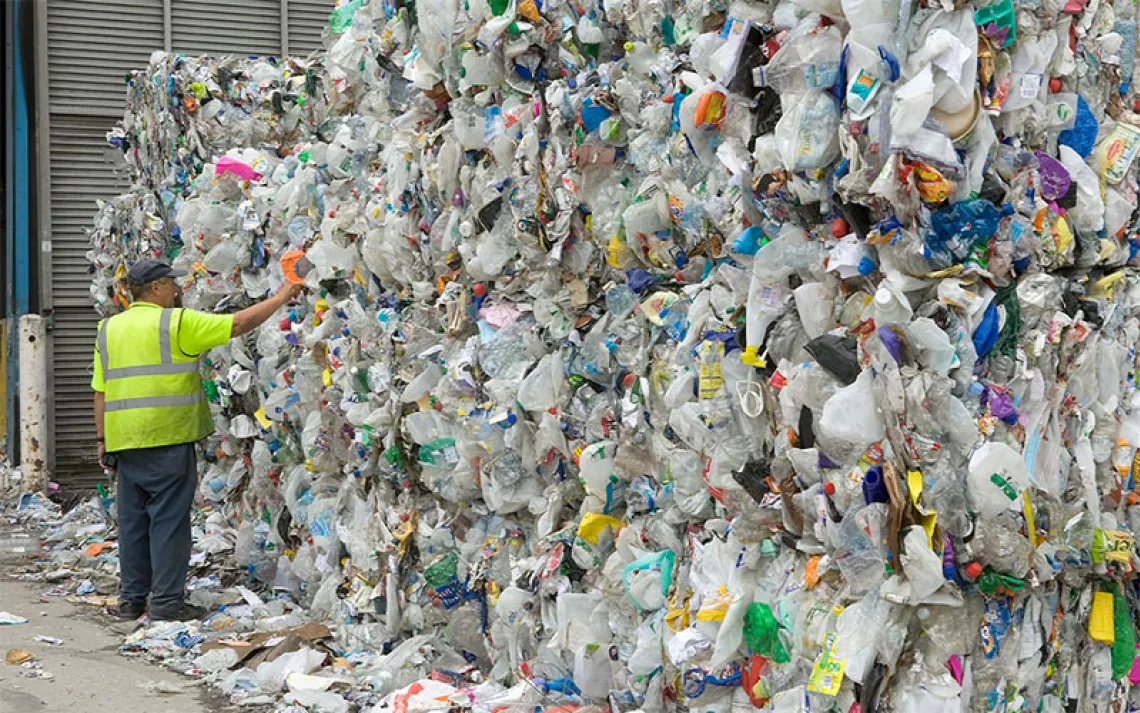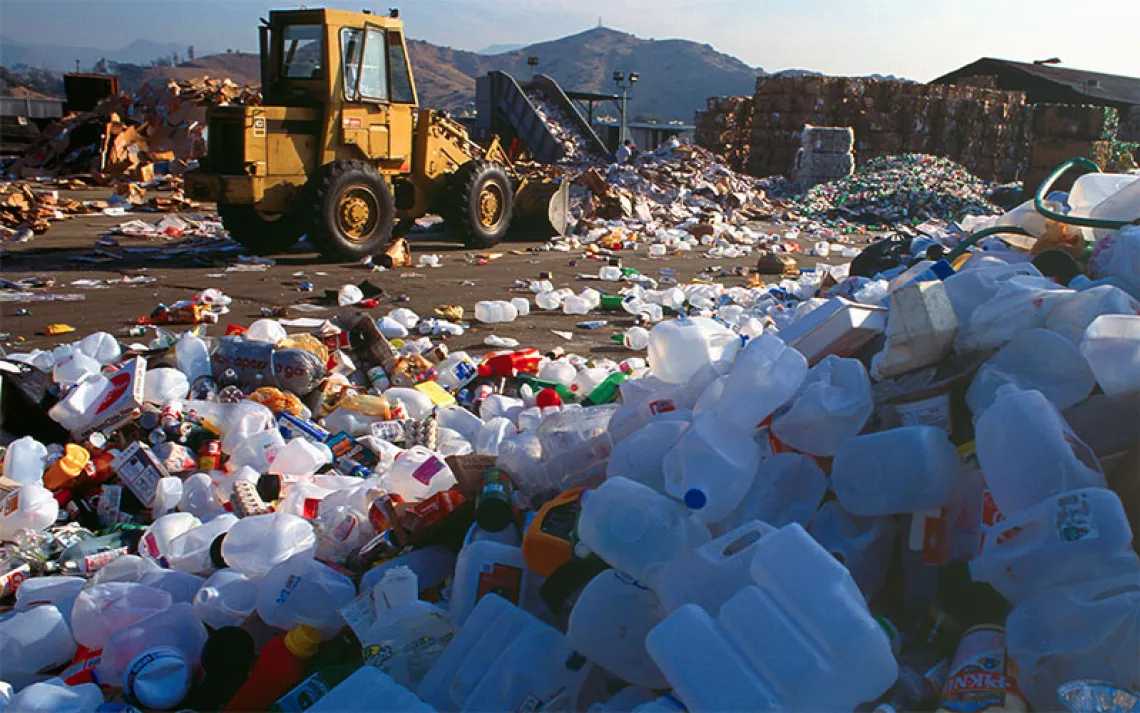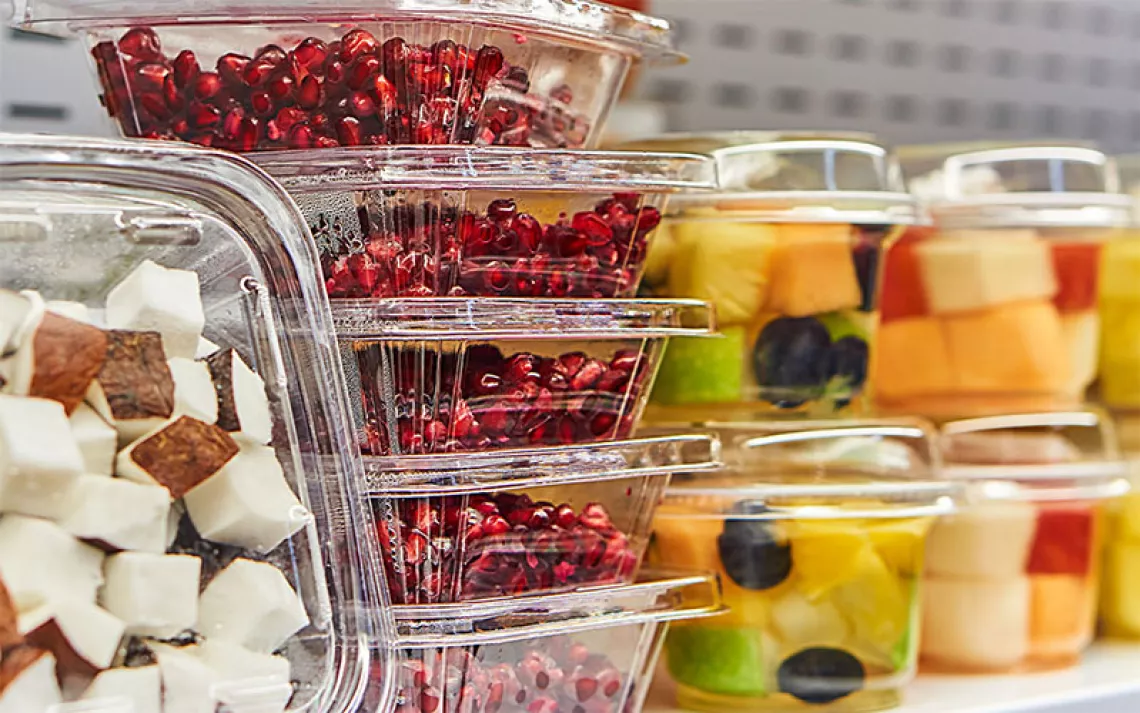Baltimore Teens Lead the Charge Against Plastic Pollution
Inside the youth-led Baltimore Beyond Plastic movement
Mr. Trash Wheel, an anthropomorphic machine that eats trash out of Baltimore’s Inner Harbor, has consumed more than 900 tons of garbage since 2014. But if the high school students behind Baltimore Beyond Plastic have anything to do with it, he might end up going on a diet.
In 2016, Claire Wayner and Mercedes Thompson founded the youth-led environmental and public health advocacy organization. At the time, their high school district was using Styrofoam cafeteria trays to serve its 80,000 students. The idea was for Baltimore Beyond Plastic to advance pending Maryland legislation to ban polystyrene foam, commonly known as Styrofoam, and to make local and state policymaking more accessible to fellow students.
Before graduating from high school last May, Wayner and Thompson managed to get Styrofoam packaging phased out of Baltimore public schools. And in April, Baltimore signed into law a city-wide Styrofoam ban, after which city council president Bernard C. Jack Young said teens' lobbying convinced him to support the bill. “Him being able to notice and credit the youth for our work was really cool, and special,” says Nicholas Kophengnavong (pictured, below), an intern with Baltimore Beyond Plastic and a rising junior at Baltimore Polytechnic Institute.
Wayner and Thompson are off at college now, but after making a dent in the 2.3 million tons of Styrofoam that end up in U.S. landfills every year, their organization is only gaining momentum. As the Baltimore Styrofoam ban comes into full effect, for instance, Kophengnavong and his fellow BPP student activists are working on educating local restaurants on packaging alternatives such as paper and compostable products.
Kophengnavong has long been interested in environmentalism—he headed up his middle school’s Green Team—but it wasn’t until he met Wayner and Thompson and joined Baltimore Beyond Plastic that he felt empowered to effect change. “I never was involved with anything political before this experience, so I am very grateful to have such an opportunity to work with councilmen and be involved in the political process,” he says.
BBP gives teens a platform to learn how to contact council members and lobby for issues they care about. Kophengnavong says he and his BPP contemporaries often figure out how to successfully make political connections from one another. “Claire and Mercedes have been doing this for awhile now, so they really helped me get into the process,” he says, explaining that the group is democratically run, with five core group members collaborating to get things done. “Whenever there’s an option to discuss something, we usually turn to one another’s strengths.” While BBP has a mentor from the Baltimore Office of Sustainability, Andrea Calderon, the teens make all decisions themselves. “She helps us with a lot of things, and she’s very supportive about how we approach things, but we do keep the organization youth-led,” says Kophengnavong.
BPP’s core group presents at schools around Baltimore, working to educate fellow teens about plastic pollution and other environmental hot buttons. Although Kophengnavong says he’s never quite gotten used to presenting to a roomful of his peers, he knows how important it is. “We do try and engage youths in the political process. And whenever we present at schools or do school visits, we try to educate other youths about Styrofoam and the impact it has on the environment.”
Kophengnavong’s hope is that BPP will open students’ eyes to the ways in which their own actions impact the environment. “As Baltimore city school students, we ate off of Styrofoam trays every day, and I never realized how many trays we used until joining this team,” he says. “There was no way of recycling them, or any type of effective way to throw them away. When I joined the team, I realized it wasn’t just schools where Styrofoam was impacting the environment—it was also organizations and businesses that use these takeout containers.”
BPP is only gaining strength. Kophengnavong says the group is considering several new initiatives for this upcoming year, including helping with city and school composting programs and lobbying for legislation including a plastic bag law (either a tax or an outright ban), plastic straw regulation, and even a statewide Styrofoam ban.
BBP took activism from the lunchroom to City Hall—and clearly, its teen leaders aren’t stopping there.
 The Magazine of The Sierra Club
The Magazine of The Sierra Club




